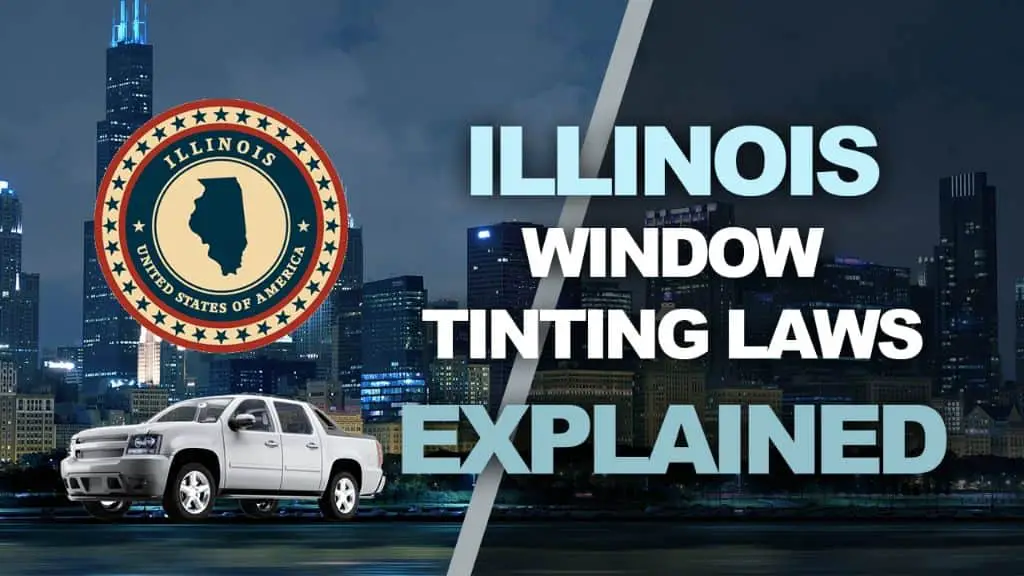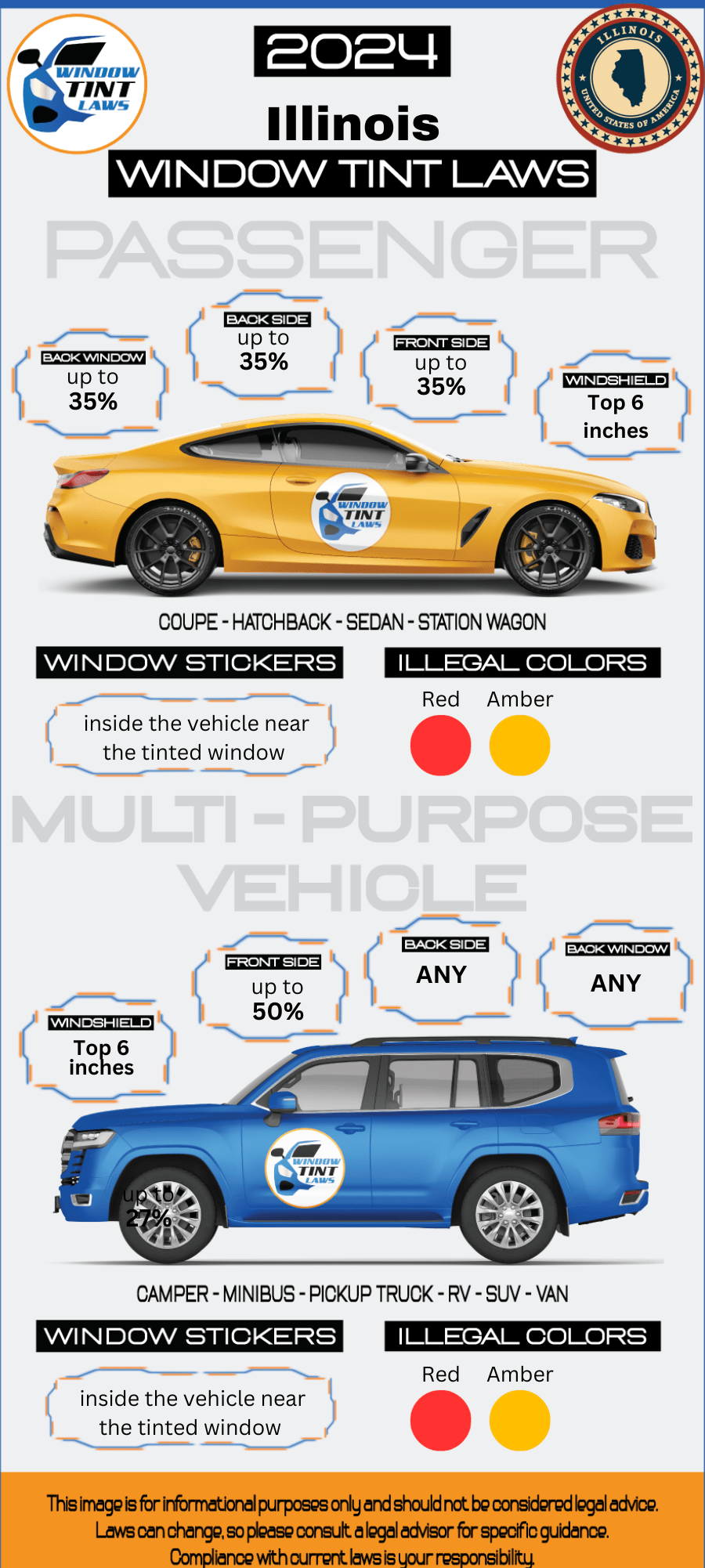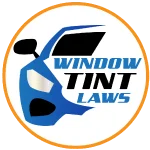

Article Created by Ryan Pietrzak
Last updated on February 5, 2024Illinois Tint Laws – 2024 Updated Legal Tint Limit
Please note that Illinois Tint Laws Regulation can change daily and may be interpreted differently at the city or county level. We recommend verifying this information with your local DMV or law enforcement agencies. We have manually fact-checked this content using official state resources. Illinois enacted tinting laws in 2009. If any information provided is incorrect or outdated, please contact us so we can make the necessary corrections. Thank you.
2024 Illinois Tint Laws – Legal Tint Limit For Passenger Vehicles
- Front Windshield: Non-reflective tint is allowed on the top 6 inches of the windshield.
- Front seat side windows: up to 35% tint darkness allowed limiting tint to 35% or lighter.
- Back seat side windows: up to 35% tint darkness allowed. Back-side windows must allow at least 35% light transmission, restricting tint to 35% or lighter.
- Rear window: up to 35% tint darkness allowed
2024 Illinois Tint Laws – Legal Tint Limit For Multi-Purpose Vehicles
- Front Windshield: Non-reflective tint is allowed on the top 6 inches of the windshield.
- Front seat side windows: up to 50% tint darkness allowed
- Back seat side windows: Any tint darkness can be used
- Rear window: Any tint darkness can be used

- Medical exemptions: Illinois tint laws permit darker tints on front side windows with a doctor’s note
- Illinois tint laws prohibit metallic or reflective tint on any of the windows
- Illinois car window tint laws are statewide with no additional local regulations
- Violating Illinois tint laws can results in fines of $75-$750 depending on prior offenses.
What does VLT Mean according to Illinois Tint Laws?
- Window tint film’s light transmission is measured as VLT (Visible Light Transmission) and each state has its own legal limits for VLT on car windows.
- A HIGHER VLT means that more light is allowed to pass through the window tint film.
- Example: a 75% tint will allow 75% of the light to pass through whereas a 5% tint will only allow 5% of the light to pass through, making the 5% tint a much darker film.
- Illinois window tint laws has specific VLT limits for Passenger Vehicles and Multi-Purpose Vehicles.
FAQ’s Regarding Illinois Tint Laws and Illinois Legal Tint Limit
What is the darkest legal tint in Illinois?
In Illinois, the darkest legal window tint is 35% VLT (Visible Light Transmission) for all side and rear windows of passenger vehicles. This means the tint must allow at least 35% of the light to pass through.
Are police exempt from window tint laws in Illinois?
In Illinois, police vehicles are generally exempt from the state’s window tint laws. This exemption allows law enforcement vehicles to use window tint that is darker than the legal limit for regular passenger vehicles.
How do I get a tint waiver in Illinois?
In Illinois, to obtain a window tint exemption for medical reasons, you must submit an application along with a physician’s statement certifying the medical necessity for darker tint to the Illinois Secretary of State’s office. If approved, you will receive an exemption allowing darker tint than the standard legal limits.
How much is a tint ticket in Illinois?
In Illinois, the cost of a ticket for a window tint violation can vary but typically ranges from $50 to $500. The exact amount depends on the specific circumstances of the violation and local regulations.
Can you get pulled over for tint in Illinois?
Yes, in Illinois, you can be pulled over by law enforcement if your vehicle’s window tint is suspected to be darker than what is legally permitted. This could result in a ticket or a requirement to remove the non-compliant tint.
How to get a Tint Exemption in Illinois
Medical exemptions are permitted. Drivers must obtain a copy of a certified statement or letter from a licensed physician. Illinois laws allow systemic or discoid lupus erythematosus, disseminated superficial actinic porokeratosis, albinism, but also permit other medical conditions to obtain exemptions. Copy of certified statement must be kept in the installer’s permanent records.
Medical exemptions are not given when sunglasses or other protective eye devices provide sufficient protection.
The certificate must be renewed every 4 years.
For more information regarding window tint medical exemptions in _____ you can check out this resource:

Ryan Pietrzak
Creator of Windowtintlaws.us
